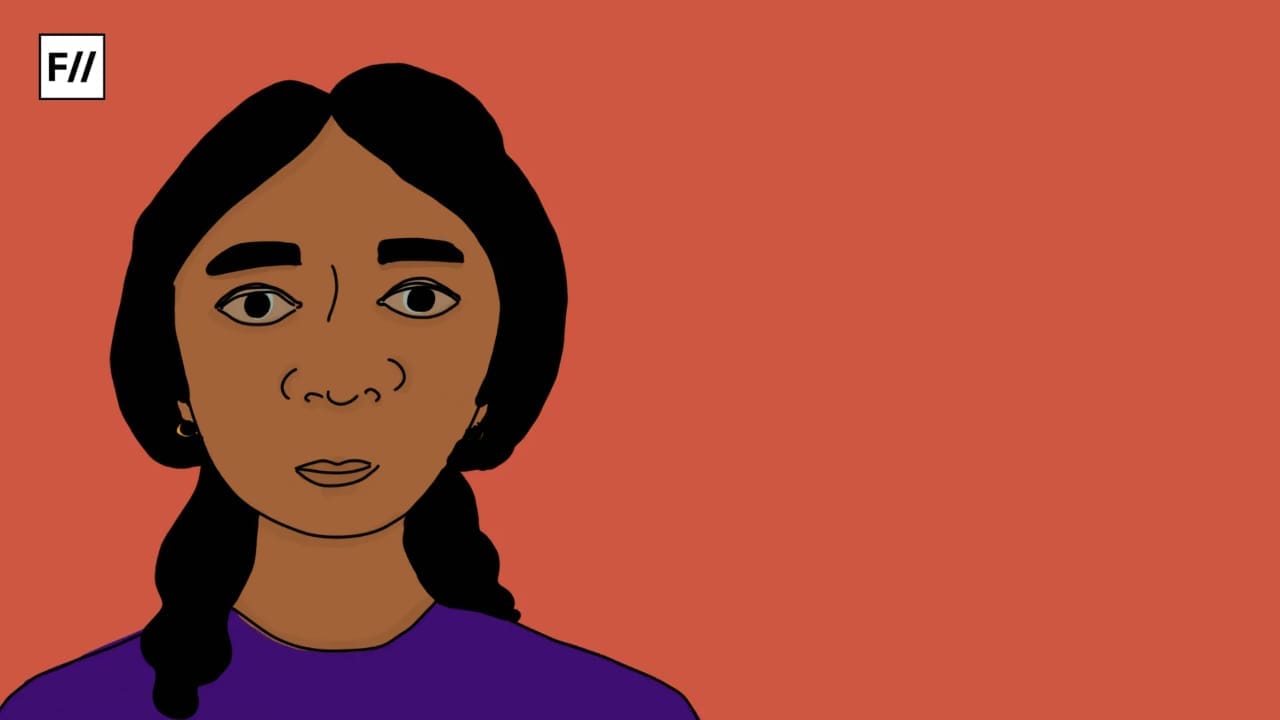Slowly unravelling the patriarchy in a common woman’s life against the backdrop of a developed South Korea, ‘Kim Ji-young: Born 1982’ is a story millions of women can relate to. A combination of facts and fiction, it works to show the pressing reality of women in Korea and, at large, the world. While the author Cho Nam-joo faced huge backlash for the novella, the footnotes backing up the statistics she has used stand by her against every negative commentary regarding the story’s accuracy. Considered to be a large inspiration for the #MeToo movement in South Korea following the murder of a woman at the Gangnam metro station in 2016, it’s an international bestseller and one of the first feminist writings emerging from the country.
The narrative starts with Kim Ji-young’s husband observing a gradual change in Kim Ji-young’s behaviour. This change is unusual and uncharacteristic of Ji-young. What ticked it off? While the reasons were clear to me from the very beginning, people around Ji-young are baffled. Without warning, Ji-young loses her sense of self and talks and behaves as if possessed by the spirit of other women in her life, alive or dead. A scary thing for her husband to witness. A circumstance they fail to understand.
Slowly unravelling the patriarchy in a common woman’s life against the backdrop of a developed South Korea, ‘Kim Ji-young: Born 1982’ is a story millions of women can relate to. A combination of facts and fiction, it works to show the pressing reality of women in Korea and, at large, the world. While the author Cho Nam-joo faced huge backlash for the novella, the footnotes backing up the statistics she has used stand by her against every negative commentary regarding the story’s accuracy.
But the reason behind the sudden change in Ji-young’s behaviour can easily be traced back to institutionalised patriarchy. The story works to cover plenty of complex yet fundamental themes and seems like a true story brought to life.
After the initial observations of her husband, the narrative proceeds in the third person and talks of Ji-young’s life at different stages, at points also talking of the difficult life her mother had to lead. From Ji-young’s childhood, we can see that there was a clear distinction between the girl children and the boy in the house.
This difference in treatment was extremely normalised to the extent that it continued to be the natural cycle of everything. Both the sisters share a room because the brother needs his own space. The grandmother coddled the brother and scolded the sisters. The brother always got more, while the sisters shared everything they ever got. It was obvious the boy was loved more. It was clear he was the family’s pride even before he came into the world.
After Ji-young’s mother gave birth to the two sisters, everyone hoped the third one would be a boy. But when the mother was pregnant with her third baby, multiple factors led her to believe the third child would yet again be a girl. Out of desperation and unsolicited pressure, she aborted her third baby. Because who can explain to these people that a family with only daughters is also complete and as enriched as one with a son?
Following these unfortunate circumstances, Ji-young’s mother gave birth to the family’s most adored baby boy. Every action in such a constricted family dynamic results in a natural flow of oppression. Ji-young and her sister, Kim Eun-young, constantly make sacrifices from their childhood whilst never questioning or realising why. The same goes for their mother, who had to give up her schooling and work to ensure that her brothers could go to school and be the shining stars they needed to be. Today, while her daughters have more choices, the chains of patriarchy, directly and indirectly, bind them down.
This difference in treatment was extremely normalised to the extent that it continued to be the natural cycle of everything. Both the sisters share a room because the brother needs his own space. The grandmother coddled the brother and scolded the sisters. The brother always got more, while the sisters shared everything they ever got. It was obvious the boy was loved more. It was clear he was the family’s pride even before he came into the world.
When Ji-young goes through an episode of harassment while coming home after dark from an academy far from her house, her father makes it about her rather than empathising with her daughter. Eventually, it becomes her fault because she came back late, because she goes to an academy far from home and because maybe her skirt was too short. But the perpetrator?
According to decades worth of information, statements by public figures, and the family environment of millions of women, the victim is always at fault. Until recently, no one tried to question the lack of critical thinking and logic behind these accusations. Why can’t the world be made safer for women? Why isn’t the perpetrator not at fault? Why should Ji-young backtrack on her education for this? Multiple questions were left unanswered.
But it doesn’t end here. As Ji-young reaches adulthood and starts working, we see her push as hard as she can, yet no amount of hard work can help her push past the sexist boundaries drawn by her superiors to keep their higher teams devoid of female workers who they believe will ultimately leave one day after marriage or after giving birth. A reality Ji-young experiences as well.
When Ji-young gets pregnant with her daughter, there is a clash between her and her husband. They try their best to work it out so that Ji-young can go back to work after her maternity leaves end, but circumstances ensure that she is the one to give up her career. The explanation is simple, given the gender pay gap, Ji-young can’t make as much money as her husband, and the amount she currently earns can not support the three of them. All things considered, Ji-young gives up the job she loves with a broken heart. Throughout every one, her husband presents himself as someone who understands, someone who wants to help but unsurprisingly fails to do so.
After a point, Ji-young’s suffering is something she finds herself unable to share. When her friend from work visits her, the current climate of the workplace is something hard to read without feeling uncomfortable. This part talks of the spycam situation in most of Asia and its impact on the victims.
Unsurprisingly, in our world, society somehow finds a way to blame this on women as well. In the story, the workers’ only female superior fights alongside all the women of the office. The heads want to make the happenings non-existent and quiet down the chatter.
Following this, the female boss and multiple women workers leave the company. While Ji-young is partly relieved that she wasn’t a part of the company during this, her heart aches for the trouble women have to go through to be independent and make a name for themselves.
By now, her daughter is growing well and healthy, but in her heart Ji-young is lonely. She feels a lack of purpose in her life. The insults of people take a toll on her, but there is a lack of understanding from those around her because, traditionally, you are not supposed to talk about these things. You suffer quietly because that’s how it is.
Ultimately, everyone seems to collectively not understand that Ji-young’s ‘condition’ is a by-product of patriarchy’s centuries worth of oppression. Any community that has been historically oppressed and has been made to feel weak and without a voice struggles to find a way out of the systemic oppression in their life. Ji-young is lonely and struggling. No one is willing to understand what she wants, yet they claim to know what’s best for her.
When she visits a psychiatrist, a man, he narrates his own wife’s story, who gave up her career after birth. A maths genius who now finds joy in solving her young son’s maths workbooks because that is the only thing she can control. The psychiatrist feels unhappy with his wife’s state and says he understands what Ji-young is going through.
An empathetic modern man? Yet in the next breath, he says how female workers leaving because of pregnancy and motherhood need to be replaced by someone more permanent, aka, a man. The psychiatrist truly comes full circle.
While he wants to do something for his wife, he can not do it. Moreover, he practices the same patterns that became the barrier in his wife’s life in the first place. The story ends in a full circle presenting an end with the implication that Ji-young’s life will not get better.
Also read: Inside The Exploding Anti-Feminist Movement Of South Korea
The movie adaptation of the book of the same title and the actors in the movie faced a huge backlash as well. Though slightly different from the novella, the movie does pierce every watcher’s heart. The movie provides hope that the novella doesn’t through its ending, yet both versions depict the feelings and unfortunate events women go through in South Korea and in the world. A great read, the novella’s strong stand against the institutionalised patriarchy in South Korea is commendable.
Also read: K-Pop Suicides Sparks South Korean Women’s Protest Against Femicide
Featured image source: Youtube





